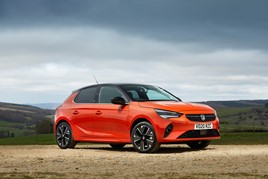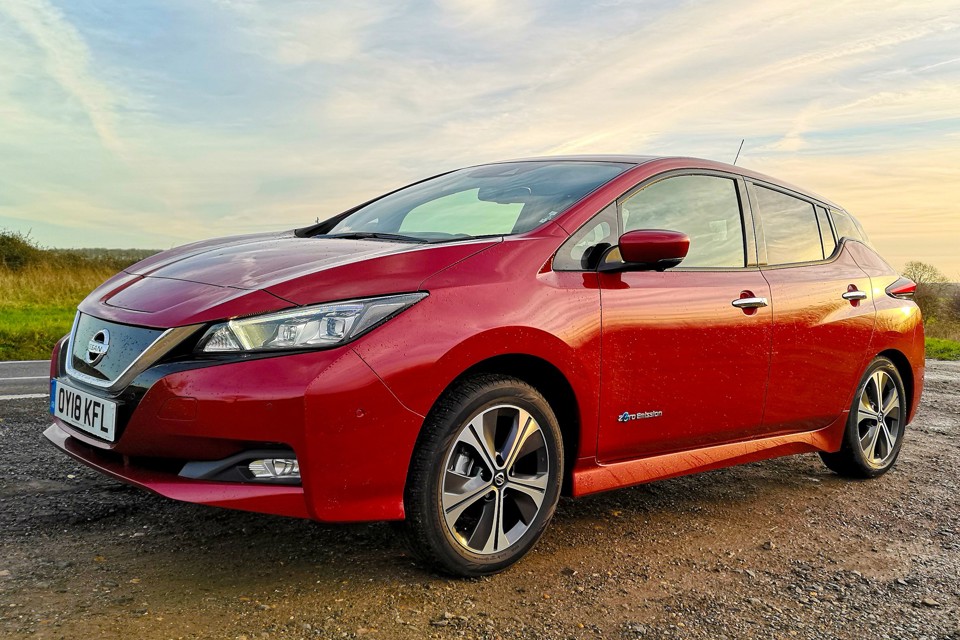August’s average used car value is heading for a close to 2% drop, potentially the largest yet this year, as the market “realignment” continues, says Cap HPI.
Average used car values have continued their decline, at the mid-August point by 1.2%, which has led director of valuations Derren Martin to forecast around a 2% drop by the month-end, which will be the biggest in 2023.
In July, values fell by 1.9%.
“We’re going through a realignment on pricing, I think. It’s not a crash. As prices are still high versus where we were two or three years ago, it is a realignment, and there’s a little more volume being put into the market which puts the pressure on.”
 Nevertheless, it will be the biggest August drop when Cap HPI introduced its Black Book Live valuations system in 2012.
Nevertheless, it will be the biggest August drop when Cap HPI introduced its Black Book Live valuations system in 2012.
Martin said retail prices are okay, helped by it being summer holiday season when the market gets “a bit patchy”.
Martin said the market has felt seasonal in recent months. However, as August is typically a month when values don’t drop by much, this time the movement has been notable.
“There's not so much appetite to pay high prices for cars currently so they’re easing off really.”
Values of used electric cars continue to fall slightly faster, down 1.5% at mid-August. Within that, said Martin, some haven’t moved much - Hyundai Kona has actually risen by 1% - but others have weakened more rapidly. Polestar 2 is down 6%, older Renault Zoe by 4%, Smart ForTwo by 5%, Tesla Model 3 by 2.5%, Tesla Model Y is down 2%, VW Up electric 2% down.
“With EVs, where we’ve had five or six months of everything coming down, now they are jostling to find their place.”
He said some EVs with lower range are possibly looking a bit expensive now. There will be dealers who bought stock based on high retail prices and who are trying to sell retaining that margin, but with trade values now adjusting they will need to be careful to make their stock attractive.
He said there are no market segments that are bucking the decline. Convertibles are dropping by 1.4%, which can be expected as the summer heads to an end.
Given the lowering of EV values, Martin said he had expected values of hybrids, both PHEV and self-charging, to be more under pressure than the data currently shows, but this pressure could be yet to come. “Some look a bit expensive against EVs,” he warned. Some premium hybrids, such as Defender, Range Rover Sport, VW Tiguan and Mercedes E-Class are showing a little strain already, down between 3% and 4%.
He said those car buyers with any expectations for petrol and diesel values to slip significantly will be disappointed. While EVs have been hit, they remain such a small proportion of the used car market that they’re unlikely to “drag down” petrol and diesel values. It does now mean that some electric versions of the same or equivalent petrol car are much cheaper. At 12 months old and 10,000 miles, a Vauxhall Corsa-E 100kW Elite Premium is now valued £2,000 lower than a Corsa 1.2-litre turbo petrol Elite Nav Premium.
 Martin doesn’t think huge numbers of consumers are yet convinced to pick used EVs though. “Being blunt, this probably still isn’t enough to encourage more people to buy them as the volumes are increasing.”
Martin doesn’t think huge numbers of consumers are yet convinced to pick used EVs though. “Being blunt, this probably still isn’t enough to encourage more people to buy them as the volumes are increasing.”
He said some retailers are doing well out of buying used Nissan Leaf, Renault Zoe or Tesla Model 3 in bulk and retailing them.
Asked whether some dealers will be looking to increase their stock of old, affordable ULEZ-compliant cars, he said that is a real possibility. “That £2,000 scrappage grant doesn’t really get much any more though, the way car prices have gone up.
“It’s difficult at that end of the market too for credit. With the cost of living, interest rates are an issue.
"If people are going in to buy a replacement car they’re realising how much more they’ll have to pay because APRs have gone up. We’ve heard of examples where people decide to stick with what they have, they prioritise their mortgage payments over changing car. It’s a factor.”
However most dealers are still avoiding damaged cars – they’re conscious of ongoing delays in getting parts that could mean extended days before a vehicle gets marketed.
“Bearing in mind cost of living concerns the market is doing well really,” Martin concluded.
“The market is pretty steady. There’s no reason to panic on pricing despite what has been happening with EVs."
He said September will bring an opportunity – there will be more cars coming back into the market from fleet and leasing so there will be good stock for dealers to acquire.


















Login to comment
Comments
No comments have been made yet.